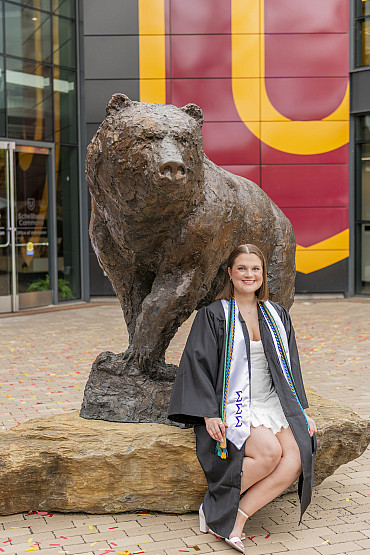What are Physician Assistants (PA)?
Physician Assistants (PAs) are medical providers, most with graduate-level educations. They are licensed to diagnose and treat illness and disease, and to prescribe medication for patients.
PAs work in physician offices, hospitals, and clinics in collaboration with a licensed physician. Because of their advanced education in general medicine, modeled after physician education, PAs can treat patients with significant autonomy within the physician/PA relationship.
In the primary care setting, PAs can provide almost all the clinical services that physicians provide, including performing physical exams, diagnosing and treating illnesses and prescribing medications.
PAs are qualified to practice by graduation from an accredited PA educational program and certification by the National Commission on Certification of Physician Assistants (NCCPA).
PA programs are typically two-year programs that result in a Master’s degree, but accelerated programs and dual-degree programs are also common.
Begin Your Path to becoming a Physician Assistant at Ursinus College
At Ursinus College, you can start your path towards becoming a PA as soon as you arrive on campus. There are ample opportunities and experiences for Ursinus College students interested in a career as a Physician Assistant. We have a long tradition of preparing and placing our students in PA programs, through a rigorous curriculum that is interdisciplinary, experiential, and research-intensive.
Bolster your application by joining a health sciences, biology or psychology research group beginning on day one. Our small research communities are game-changers when it comes to applying for PT school. Work one on one with professors on research projects as a Summer Fellow. Improve confidence and presentation skills by sharing research at our annual Celebration of Student Achievement (COSA) in the spring semester, where over 400+ students present their projects and findings.
Explore opportunities for programming, outreach, service leadership and innovation through participating in related student organizations or interdisciplinary centers such as the Parlee Center for Science and the Common Good.
Gain applied and professional experiences through internships and externships as part of our Experiential Learning Project (XLP) requirement. The XLP is a great way to acquire clinical and patient contact hours through volunteering and community services hours.
Course and Experience Requirements
Each PA program has their own specific application requirements so you should consult the individual program to obtain a listing of the prerequisite coursework. In general, most programs require
- 2 courses in biology (with lab)
- 2 course of general chemistry (with lab)
- 1 course of organic chemistry (with lab)
- 2 courses of anatomy and physiology (with lab)
- 1 course of microbiology (with lab)
- courses in English composition
- medical terminology
- psychology
- statistics
Some programs may require courses in biochemistry, genetics, and additional courses in psychology and sociology.
Many schools advertise a minimum GPA of 3.0 to apply to their programs but GPAs of 3.5 to 3.7 are considered competitive. Students with grades of less than B-, especially in the prerequisite courses, would not be considered as competitive applicants.
PA programs will also often require a certain number of hours of healthcare experience that includes direct patient care, often at least 200 hours, but sometimes upwards of 1000 hours. In general, most programs require approximately 500 hours. Experiences in a variety of healthcare settings with diverse patient experiences as well as shadowing physician assistants and other healthcare providers is strongly recommended. Again, consult with the schools to which you are applying for specific requirements.
Area Schools
- Arcadia University Physician Assistant Program
- DeSales University Physician Assistant Program
- Drexel University Physician Assistant Program
- Philadelphia College of Osteopathic Medicine Physician Assistant Program
- Philadelphia University and Thomas Jefferson University Physician Assistant Program
- Salus University Physician Assistant Program
- Saint Joseph’s Master of Physician Assistant Studies

